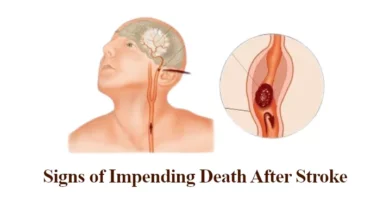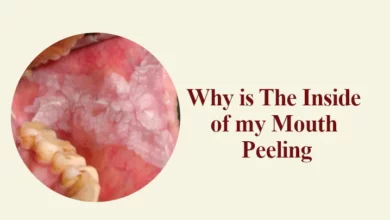How to Get rid of Keloid on Nose Piercing Overnight

Looking for how to get rid of keloid on nose piercing? Nowadays, it is common to experience keloid after getting a nose piercing. Around the whole side of the nose piercing area, you might observe to bring out bump or keloid. But people are always looking for why it appears just after getting the nose piercing.
Sometimes, it is very painful and spreads all over the nose. Therefore, to get rid of these bumps or keloid, people will have to take the help of some tips or remedies. Not only that, there are multiple reasons why people face the nose bump problem.
Rather on the other side, having the problem of infection and allergy skin can often bring out the problem of this particular situation. Hence, here in this article, we are talking about how to quickly get rid of keloid on nose piercing. But you should not go with any one of the random solutions. You need to find out the most effective tips for applying.
Otherwise, it might stay a long time on your nose and can spread to the whole piercing area. Let’s join in our discussion to find out the tips on how to get rid of keloid on nose piercing.
In This Article
- What is a keloid on Nose Piercing
- What Causes a Keloid on Nose Piercing
- Nose Piercing Keloid Symptoms
- How to get rid of Keloid on Nose Piercing
- Nose Piercing Keloid won’t go away
- Nose Piercing keloid Prevention
What is a keloid on nose piercing?
Simply put, a keloid on a nose piercing is a kind of scar appearing only after your skin gets injured. It can be the also reason for having a nose piercing.
When a particular piece of jewelry enters your nose, it might damage the layers and can bring out multiple skin-related problems. And these nose bumps or keloids are one the skin-related problems. It often comes in like red rashes and increases the irritation and pain in the piercing area.
Even people can also notice sometimes the affected area becomes darker than the skin color of individuals. Keloid on nose piercing should be treated by taking the guidelines of the doctors or Dermatologists.
What Causes a Keloid on Nose Piercing
Nose piercing keloid appears for multiple reasons. Let us check out some common reasons for experiencing this problem after getting a nose piercing.
1. Tissue Damage
When you are doing nose piercing, unfortunately, sometimes people can face damaged tissue problems when the jewelry deeply enters the layers of the nose. Not only that went, you will remove the piercing jewelry too early, then it can also be damaged the earth issues of your nose, and you can face the problem of keloid.
2. Infection
Besides that, people are rapidly facing the problem of infection and can suffer from the problem of a red bump on nose piercing.
However, sometimes if you are not maintaining hygiene piercing jewelry when doing the nose piercing, it can also affect your skin and cause keloid.
3. Allergic Reaction to the Jewelry
Subsequently, people who are facing the problem of allergic skin tone can face the problem of this particular issue rapidly.
If any one of the jewelry goes or enters within their skin, people will face the problem of bumps or keloids on the nose or the piercing area. Hence, people allergic to any kind of jewelry should not use it to avoid the problem of nose piercing keloid scar.
4. Trapped fluid creates a Lump
Similarly, another one of the causes of facing the problem of bumps or keloids on the piercing area is just because of the trapped fluid inside the jewelry.
The jewelry you are putting for your nose piercing can create bumps or lumps in the surrounding area of the nose. Keloid nose piercing bump often appears for this particular cause.
Nose Piercing Keloid Symptoms
There are many more common symptoms you can experience if you face the nose-piercing keloid problem. Here in this paragraph, we are mentioning some of the former systems through which you can quickly recognize the problem of nose bumps.
1. Pain
The first common symptom of experiencing the problem of nose bump or nose keloid is having pain in your piercing area.
After getting the nose piercing, you can sometimes feel the frequent and unbearable pain just because the unhygienic jewelry that enters your nose brings out the cause of keloid piercing nose pain.
2. Itching
Another one of the common symptom of this particular problem is that you will severally feel the problem of itching in the surrounding piercing area.
After having a nose piercing, if you are facing the problem of itching in the nose piercing area, you should take the help of a doctor or discuss it with your piercer.
3. Tenderness
Besides that, another one of the symptoms of having the problem of nose bump or keloid is tenderness. Whenever people will touch the affected area or the particular piercing area, they will be able to feel the tenderness.
It can often make you feel irritated and uncomfortable for a long time if you are not taking the help of medication or medical treatment immediately. A keloid around nose piercing comes out as red bumps.
How to get rid of Keloid on Nose Piercing
Now let us know some common remedies that can help you immediately cure the problem by sitting at your home.
1. Salt-water Solution
Prepare a solution with lukewarm water and one teaspoon of salt. And try to apply the remedy with a cotton bar to the affected area.
2. Lemon and Honey Treatment
People can also prepare a paste of lemon and honey to apply on the affected area to get rid of the problem nose keloid.
3. Tea tree oil to heal the infection
Piercing keloid tea tree oil Is the most effective remedy for treating the problem of nose keloid. Just applying the affected area to the oil can solve the problem.
4. Hot and Cool Compression
By using Hot and Cold compression, people can also get rid of the problem of nose keloid naturally and quickly by sitting at home.
5. Aloe vera
Another one of the most valuable things that can help you to get rid of all the problems is aloe vera. It is very effective and can quickly remove the infection from the affected area.
Nose Piercing Keloid won’t go away
After doing everything like treatment and precautions, if you still face the problem of nose keloid, and if it does not go, you should immediately take the help of a dermatologist.
Under their guidelines and instructions, you will have to follow all the treatments and medication to get rid of the problem immediately. Nose piercing keloid treatment will solve your problem and again help you look beautiful with a nose piercing.
Nose Piercing keloid Prevention
Now here we are mentioning some of the prevention that can help you avoid the problem of nose keloid after getting a nose piercing.
- You will have to take care of the nose piercing area regularly.
- Try to maintain a hygienic condition for the jewelry that goes to your nose layer.
- Besides that, you will have to avoid junk foods. Instead, you will have to only stay on healthy food.
- Do not try to remove the jewelry from your nose until it becomes dry.
Be sure to read: What is a Ganglion Cyst
Conclusion
Therefore, these are the steps you need to follow to get rid of keloid on nose piercing.
References
- Common complications of body piercing – NCBI
- Piercings in medical students and their effects on the skin
- Complication of nasal piercing by Staphylococcus aureus endocarditis





